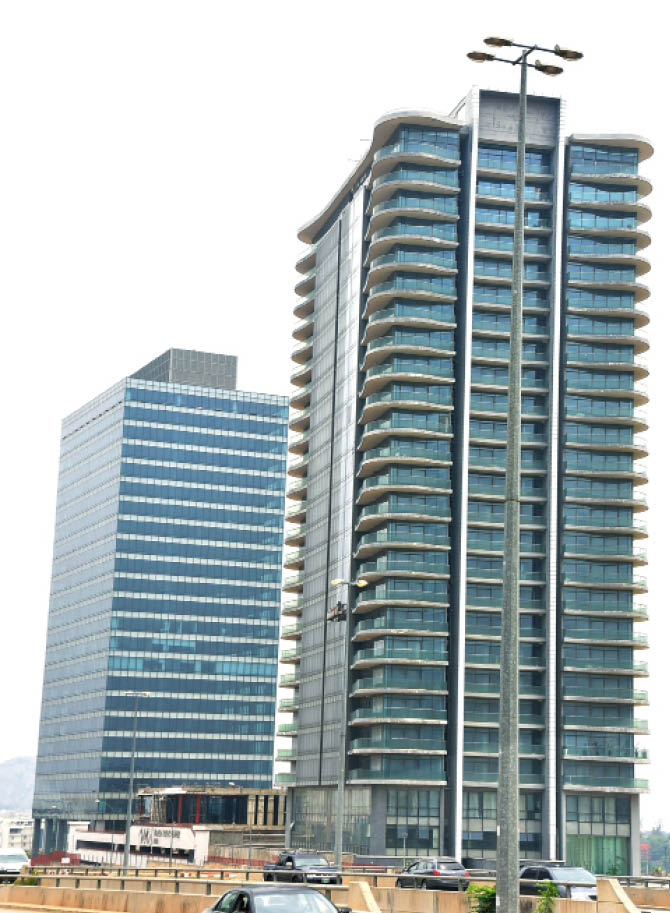It is a known fact that Nigeria’s current land policy administration is riddled with bottlenecks and bureaucratic procedures which have hampered the property sector and its huge contribution to the overall growth of the economy.
Statistics have shown that Nigeria holds close to $1 trillion worth of dead capital in residential real estate which could have been used as a catalyst to accelerate economic growth and development.
Similarly, PwC estimates that Nigeria holds at least $300 billion, or as much as $900 billion worth of dead capital, in residential real estate and agricultural land alone.
The high-value real estate market segment holds between $230 billion and $750 billion in value, while the middle market carries between $60 billion and $170 billion in value.
- Attack on Dangote Refinery will demarket Nigeria, democracy group warns
- N/Central has highest TB rights violations in Nigeria – Report
The rationale behind these include non-titling of real estate assets, lack of real estate titles and the inability of owners to use titles to raise bank loans for other investment opportunities.
Experts in the property sector have identified dead capital in the real estate sector to the tedious process of obtaining Certificate of Occupancy C-of-O).
Speaking on the issue, a real estate expert, Pasum Donald, noted that “Despite the commencement of land registration in Nigeria since 1863, available data indicate that only about three per cent of the land in Nigeria is registered.
“By implication, it means that (97 per cent) cannot be converted to capital and is now referred to as dead capital. This is a huge challenge, especially at a time when the current administration of President Bola Ahmed Tinubu is targeting a $1 trillion economy in a few years to come,” he stated.
Pasum added that: “Under the current land policy, one can hardly use a plot of land as security for a loan so vast land resources remain dormant due to lack of title.”
Similarly, the President of the Nigerian Institution of Estate Surveyors and Valuers (NIESV), ESV Victor Alonge, while speaking on the issue, said the current state of the Nigerian economy calls for an urgent look at the huge benefits of appropriate professional asset valuation which will no doubt unlock key potentials and inherent resources in the country.
“There is also a need for a closer look at the Land Use Act as over 90 per cent of land in Nigeria is not registered which means a huge potential loss as one cannot use land that is not registered for financial transactions or provide a security guarantee.
“In the same vein, Nigeria currently lags behind in undertaking credible valuation of her national assets. While the total value of global property assets was reported at $613.30 trillion, and the global stock market at $109 trillion as of 2023, Nigeria does not yet know the value of her own real estate assets,” he added.
Nation land commission underway – FG
However, the Federal Ministry of Housing and Urban Development, announced plans to partner with the World Bank Group to conduct a National Land Documentation and Titling Programme in the country.
Speaking at a workshop on ‘Nigerian Livable Cities’, organised by the ministry in collaboration with the World Bank, in Abuja, the Minister of Housing and Urban Development, Architect Ahmed Musa Dangiwa, said the move became necessary to explore the potential of land as an economic asset which is yet to be fully tapped by the country.
He referred to statistics which showed that less than 10 per cent of land in the country is registered and has titles.
“As a result, landowners cannot easily leverage land as an economic asset. This is sad. As part of our land reforms, we are exploring a partnership with the World Bank towards the implementation of a National Land Registration and Titling Programme.
“Through this programme, we aim to partner with state governments towards improving land formalisation from less than 10 per cent to 50 per cent in the next 10 years. This is critical to unlocking over $300bn in dead capital.
“We have already worked on a draft framework for the programme and I have directed the ministry’s focal persons and consultant to share it with the World Bank Group so we can begin the process towards adoption and implementation,” he said.
He added that the programme is an important component in the ministry’s land reforms strategy and will complement its plans to set up a National Land Commission to operationalize the Land Use Act.
To this end, the minister said: “The workshop provides a platform to share knowledge, exchange ideas, and forge partnerships that will propel our cities towards sustainable, inclusive and resilient growth.
“We must harness the power of collaboration and leverage the expertise and experience of the World Bank to develop innovative solutions that address the multifaceted problems facing our cities.”

 Join Daily Trust WhatsApp Community For Quick Access To News and Happenings Around You.
Join Daily Trust WhatsApp Community For Quick Access To News and Happenings Around You.

